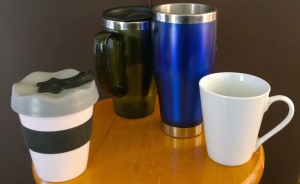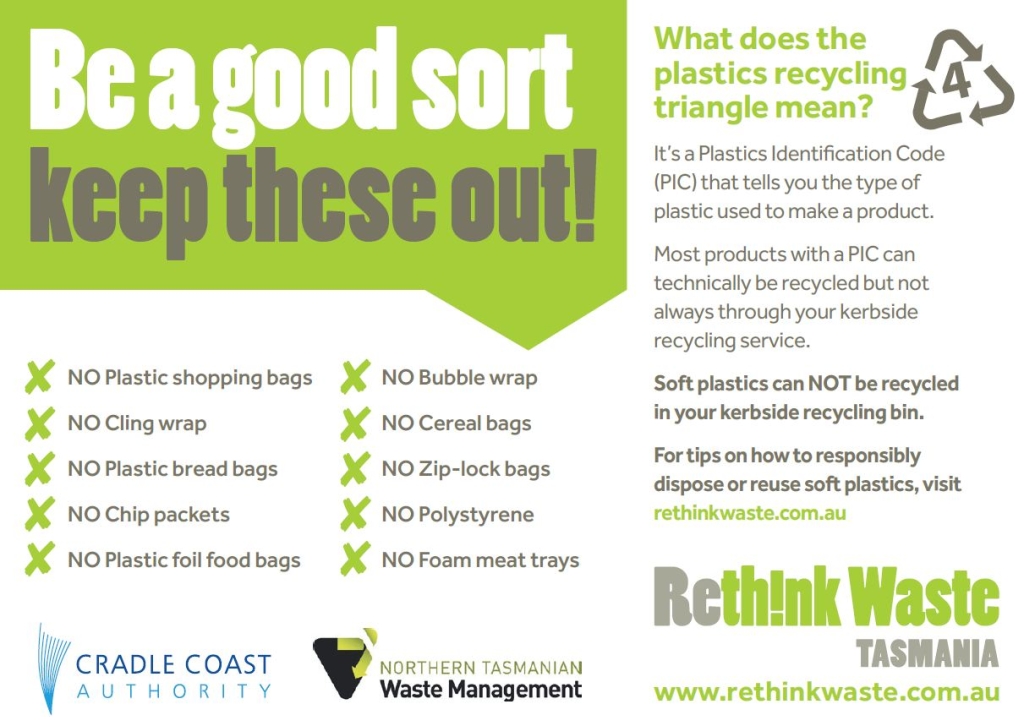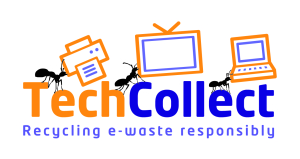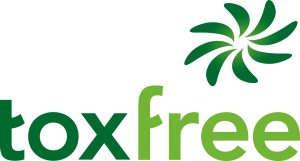Kerbside Recycling Bin Assessments: there’s a Good SORT!
Starting: 11 September 2017
Location: Circular Head, Waratah-Wynyard, Burnie City, Central Coast, Devonport City, Latrobe and Kentish Council areas.
Kerbside Recycling Bin Assessments are coordinated by the Cradle Coast Waste Management Group and take place a couple of times a year in North West Tasmania.
The assessments help tell us whether landfill diversion education campaigns are working and where we might need to focus more attention.
The assessments are also a great opportunity for you to receive advice on some of the more confusing aspects of recycling such as whether foam meat trays can or can’t be recycled (tip: they can’t be recycled via your kerbside bin, even if they feature the plastics identification code triangle).
If your kerbside recycling bin is randomly selected for assessment, the assessor will check the contents of your bin before it gets collected by the truck.
They’re looking for non-recyclable materials, known as contaminants.
The most common contaminants found in kerbside recycling bins are:
Soft plastics, foil food bags, foam meat trays, polystyrene, metal objects and electrical items.
Bins included in the assessment will each receive a sticker, advising of the assessment results and some friendly do’s and don’ts relevant to your kerbside recycling bin contents.
Thank you for being such a Good SORT!
Comparing the results of the last two assessments, we’ve found big reductions in the occurrence of these contaminants:
- Recycling in boxes (down 64%)
- Recycling in bags (down 44%)
- Tissues/tissue paper (down 57%)
- Soft plastic (down 14%)…. Well done everyone!
Want to brush up your recycling skills so you’re ready for the next assessment?
Click the links below for more information:
Recycling Assessments Info Brochure
Where do my rubbish and recycling go?
Waste management and recycling don’t end with the bin…they begin!
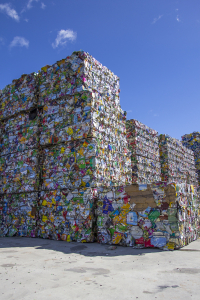 Putting recyclable materials, like bottles or cans, and rubbish in the appropriate bins are just the first step in the safe management of our waste. Some recyclable items will even be converted into new products and materials like newspapers, drinking bottles, or even planes and cars!
Putting recyclable materials, like bottles or cans, and rubbish in the appropriate bins are just the first step in the safe management of our waste. Some recyclable items will even be converted into new products and materials like newspapers, drinking bottles, or even planes and cars!
The recycling journey begins with items being collected and then brought to the Materials Recovery Facility (MRF). There, they are first sorted by hand and then by machines to be baled and processed. This is why it’s important to avoid putting dangerous or inappropriate materials in the recycling bin. Even a single soft plastic bag can block the whole recycling process!
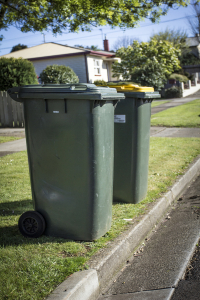 Waste too has an interesting journey. Landfills are now created with sustainability in mind, meaning they’re designed to control odours and vermin and to avoid water and soil contamination.
Waste too has an interesting journey. Landfills are now created with sustainability in mind, meaning they’re designed to control odours and vermin and to avoid water and soil contamination.
The Cradle Coast and Northern Tasmanian Waste Management Groups support facilities that sort, bundle and transport recyclables to processors. They also support landfill and transfer stations that safely dispose of thousands of tonnes of waste. By doing this, they help keep our community and environment healthy.
You can help by being a good sort and taking waste management seriously. Whether it’s at home, at work, at school or anywhere else, make sure that you toss items in the right bins.
To learn more about the waste managing process:
Fact Sheet: Recycling – Where Does It Go?
Business Tips For Better Waste Management
Or visit our Resources and Links section
Bring a reusable cup for your next takeaway coffee
Tasmanians love their coffee, but the number of single use, disposable cups ending up as litter or in landfill is a growing problem.
Most disposable cups look like they’re made of cardboard and therefore can be recycled. The reality is that takeaway cups are usually lined with plastic film to help make them watertight. This plastic can’t be recycled in Tasmania, so the cups end up in landfill.
Across Australia, around one billion disposable cups are used every year and they are now a major contributor to litter, second only to plastic bottles. If disposable cups end up in our waterways and oceans they add to the big problem of plastic pollution.
So what can you do?
- Bring your own reusable cup or mug when ordering your next takeaway hot drink.
There are plenty of stylish and affordable options available, often with lids. You may already have a favourite cup at home that you can use. - Take the time to sit in and enjoy your hot drink, rather than getting a takeaway.
It can be great for you to take a break, and it’s great for the environment too. - If you have to get a takeaway and you don’t have your own reusable cup with you, then say ‘no thanks’ to the lid if it’s not really necessary.
Once finished, put the disposable cup in the garbage bin and NOT the recycling bin. If you do have a lid, place that in the recycling bin.
Changing habits can take time but each time you avoid using a disposable cup you’ll be doing your little bit for Tassie. Now there’s a good sort!
Can soft plastics be recycled?
Often there is a little triangle with a number stamped or printed onto plastic products. This is the Plastics Identification Code (PIC) and it tells you the type of plastic used to make a product.
The triangle looks a bit like a recycling symbol and so it’s easy to think that anything with a PIC can be recycled, and technically they can, just not always through your kerbside recycling bin.
As a general rule, don’t put soft plastics in your kerbside recycling bin.
Only hard plastics that can’t be ‘scrunched’ such as plastic bottles, plastic jars, plastic plates etc can be recycled through your kerbside service.
Be a good sort and keep these out of your kerbside recycling bin:
Plastic shopping bags, Cling wrap, Plastic bread bags, Chip packets, Bubble wrap, Cereal bags, Plastic foil food bags, and Zip-lock bags. Soft plastic polystyrene and foam meat trays can also NOT be recycled in your kerbside bin.
So what can be done with soft plastics?
Most major supermarkets have collection points for plastic bags and other soft plastic materials, recycled via the REDCycle program. It’s also a good idea to reuse bags as many times as possible by taking them with you when you go shopping.
Some charity shops also appreciate a donation of plastic bags to use when distributing goods or when selling items in their stores.
Waste silage wrap plastic can be safely disposed at the Sheffield Waste Transfer Station. In Northern Tasmania there is a soft plastic recycler, Envorinex, contact them to find out what materials they are currently accepting.
Want to know more about plastics and the PIC? Check out the Rethink Waste Plastics Identification Code fact sheet.
Another handy resource is the A-Z Guide of Recycling and Waste, which lets you know how to manage different waste products, from aerosol cans to yoghurt containers and everything in between!
‘SORT Your Load’ North West Tasmania
The Cradle Coast Waste Management Group (CCWMG) is encouraging residents to SORT their load before taking rubbish and recyclables to their local transfer station.
Stacking your car or trailer in order of the transfer station drop off points will save you time and may even save you money.
Click on your Council below to view a map of your local transfer station:
- Burnie City Council
- Central Coast Council
- Circular Head Council
- Devonport City Council
- Kentish Council
- Latrobe Council
- Waratah Wynyard Council
Now there’s a good SORT!
Start. Before you leave home, neatly and securely pack your recyclables and waste. Group the same types of materials together so it’s easy to drop them in the different bays.
Organise. Pack your trailer or ute to match the order that you’ll drop them off. Refer to the map for the order that materials are dropped off as you move around the Waste Transfer Station.
Recycle. Separate your recyclables and waste. There are many materials that can now be recycled. See what else you can recycle to reduce materials going into landfill.
Think. By sorting your load, you’ll save yourself time and money and be doing your bit for Tassie. Now there’s a good sort!
E-Waste Drop-off Events
If old electrical equipment is taking up storage space or collecting dust in your home or business, then get sorted with your family and workmates, have a big clean out and bring unwanted items to one of the free E-Waste Drop-off Events in North and North West Tasmania!
Accepted E-Waste items can be dropped off at:
Temporary E-Waste collection point at 46 Lamont Street (off Invermay Rd), Invermay between 10.00am and 4.00pm on Saturday 8th April – for FREE!
Spreyton Waste Transfer Centre (Bay Drive, Spreyton) between 11.00am and 4.00pm on Sunday 9th April – for FREE!
E-Waste items accepted at the events:
- Televisions
- Computers including laptops / notebooks and PDAs / tablets
- Monitors and projectors
- LCD / flat panel monitors
- Printers and multi-functional devices
- Power supplies and adapters
- Electrical cords and cables
- Computer parts and accessories
- Toners and ink cartridges contained in a printer where they cannot be reasonably removed.
Can’t make it to Spreyton or Invermay on the day?
In the North West, you can drop-off accepted items at the Port Sorell, Sheffield, Ulverstone, White Hills, or Wynyard Waste Transfer Stations BEFORE 31 MARCH and we’ll deliver it for you. Items can also be dropped-off before 9 April at the Spreyton Waste Transfer Station.
In Northern Tasmania, there are permanent E-Waste collection points at the Launceston, Exeter, Deloraine, Scottsdale, Longford and St Helen’s Waste Transfer Stations.
Be a good sort! E-Waste is recycled to prevent materials contaminating local landfills and the environment. Recycling E-Waste and re-using components also reduces the need for companies to extract or create new raw materials when making future electronic products.
This event is proudly brought to you by TechCollect, Cradle Coast Waste Management Group, Northern Tasmanian Waste Management Group with support from toxfree.
Quiz puts recycling skills to the test
To help Tasmanians be a good sort and get a perfect recycling score, the Cradle Coast Waste Management Group has put together a quiz to test your kerbside recycling bin knowledge.
If you think you know your rubbish from your recycling, try the quiz on the Rethink Waste Games page and see how you score!

